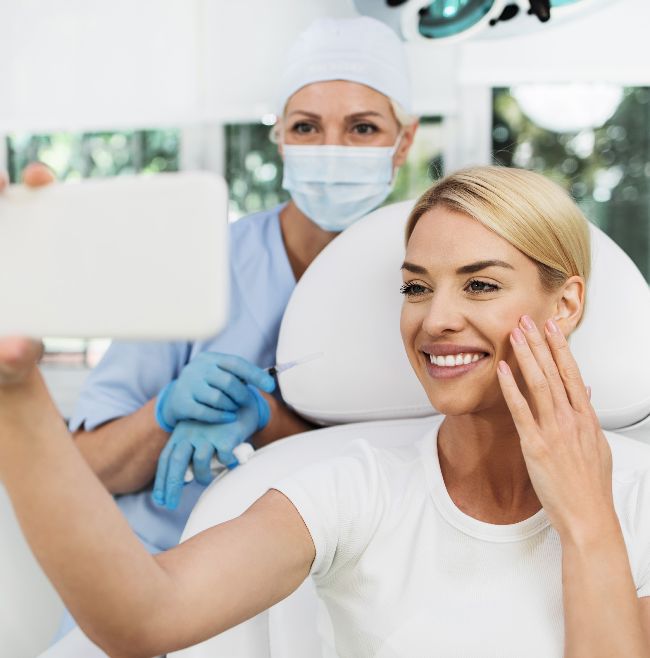INDUSTRY REGULATION
The gold standard
JCCP trustee Sally Taber reminds us of the need for industry-wide collaboration to move towards robust regulation
The Joint Council for Cosmetic Practitioners (JCCP) is a UK not-for-profit charitable body charged with the responsibility of voluntary “self-regulation” of the non-surgical aesthetics sector. The Council was established and launched formally at the House of Lords in February 2018 following an extensive stakeholder consultation process undertaken by Health Education England (HEE) in accordance with the recommendations outlined in the 2013 Keogh Review on non-surgical treatments in England.

In 2015, HEE at government behest and with industry involvement, derived a framework of qualifications resting on a skills and knowledge basis that ensured those undertaking the most skilful aesthetic treatments were fully educated. These standards were approved formally in January 2016 and transferred to the JCCP in June 2018. Therefore, the skills and knowledge framework with its standards belongs to the JCCP, who strongly wishes to share them with aesthetic practitioners to promote the professionalism that the sector deserves.
One of the key recommendations included in the 2015 HEE Report called for the establishment of statutory regulation for the sector and for the immediate creation of a voluntary register. The JCCP fulfils such a function. Hopefully, statutory regulation will happen, but it certainly has not been achieved yet.
These standards should underpin both knowledge and practice-related competencies within the aesthetics industry. Those who qualify and meet them should be registered by the JCCP and held accountable for the treatments they perform. Unfortunately, practitioners without the defined knowledge and skills are too often being deceived by unscrupulous training providers into paying for inadequate training, then let loose on an unsuspecting public.
SAFETY FIRST
Non-surgical cosmetic treatments are invasive treatments designed to alter appearance and self-image. The five modalities that inform the HEE standards are: Botulinum Toxins (BTs), Dermal Fillers (DFs), Chemical Peels and Skin Rejuvenation (CPSR), Laser, Intense Pulsed Light and Light Emitting Diode (LIPLED), and Hair Restoration Surgery (HRS).
Outcomes from these treatments can cause significant changes in mental balance of the patient, for better or worse. Permission to do this should only be given to people who are knowledgeable and appropriately trained, with the interest of the patient always foremost. Unfortunately, the evidence shows that too often in the non-surgical cosmetic industry this is not so. What Professor Sir Bruce Keogh called a “wild west” industry too often remains so, to the peril of innocent patients and profit of inappropriate operators.
As the JCCP trustee responsible for receiving and reviewing complaints and concerns, it is very concerning to have witnessed that with regards to training there are a significant number of courses provided by companies who allege that practitioners without a regulated qualification are safe to undertake training at Level 3 and then be fast-tracked to Level 7. It is not only some beauty therapists undertaking such training pathways, but also several regulated professionals. If the industry worked together in the interests of public protection, hopefully we could call a halt to this unsafe practice.
“The skills and knowledge framework with its standards belongs to the JCCP, who strongly wishes to share them with aesthetic practitioners to promote the professionalism that the sector deserves”
MOVING FORWARDS
Organisations should work more collaboratively to improve communication channels and to ensure that key patient safety areas such as the requirement to work from safe premises, to use safe and appropriately sourced products and the safe delivery of aesthetics treatments only by appropriately trained practitioners are what patients come to expect. The JCCP also recognises that training organisations should monitor patient safety and clinical quality to encourage continuous quality improvement.
The JCCP has now matured to become a key policy-making body in the aesthetics sector and engages the main professional statutory regulatory bodies, with DHSC (The Department of Health and Social Care) and Scottish Government colleagues to determine regulatory processes and standards for this sector in the interests of public protection and patient safety. These matters have now achieved new momentum within the government and the JCCP is actively determining new primary and secondary licensing and regulatory schemes to mandate standards for the sector. We have also been working closely with the Committee of Advertising Practice (CAP) and the Advertising Standards Authority (ASA) to strengthen and reinforce advertising standards and codes within the aesthetic sector.
Now is time to work together to ensure that those providing aesthetic treatments are only practitioners who are appropriately qualified. This will require conscious improvements in collaboration between everyone who believes in high patient safety standards.
SALLY TABER
Sally Taber, a former renal nurse and director of nursing for a Central London hospital, is a JCCP trustee and runs the Independent Sector Complaints Adjudication Service (ISCAS). She previously worked with Health Education England on the Qualification Requirements for Delivery of Cosmetic Procedures and with the General Medical Council (GMC) on its guidance to cosmetic doctors and for potential cosmetic patients. Sally has been a frequent speaker on broadcast channels and writes in health sector publications. She was also the president of the Open Section at the Royal Society of Medicine.